2024.05.30
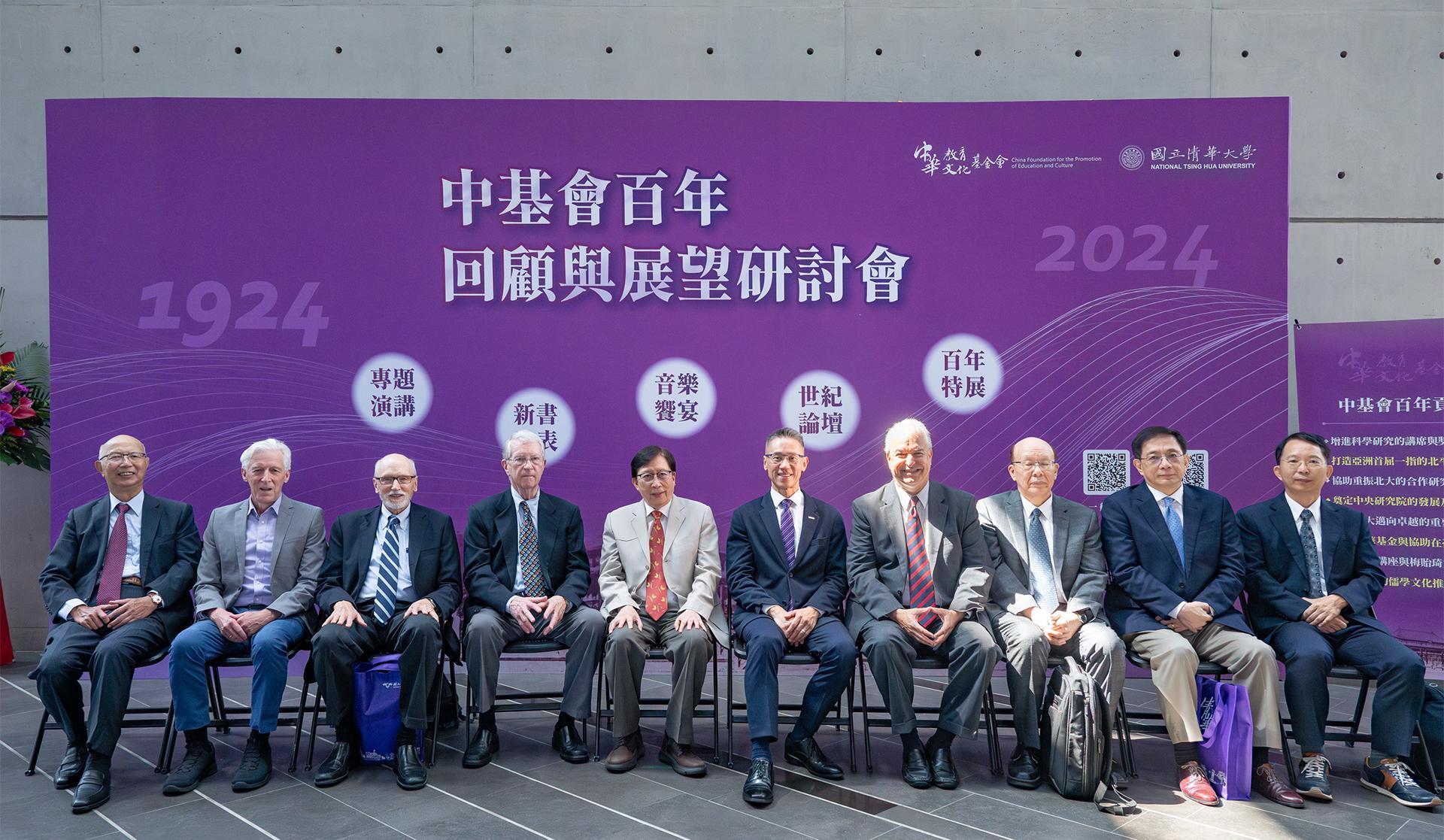
The China Foundation celebrates its 100th Anniversary; from the left: board members Chi-Chu Chen (陳季筑), Douglas Dempster, William Fuller, Robert Parker, Chairman Chao-Shiuan Liu (劉兆玄), NTHU President W. John Kao (高為元), David Firestein, Si-Chen Lee (李嗣涔), Chung-Ming Kuan (管中閔), and Tsung-Fu Chen (陳聰富).
National Tsing Hua University (NTHU) in Taiwan was established using part of the Boxer Indemnity returned by the United States, which became the Tsing Hua fund. The China Foundation for the Promotion of Education and Culture (The China Foundation), which has managed the fund since 1924, celebrated its 100th anniversary this year by holding a seminar titled "China Foundation's Centenary: Reflections and Prospects " at NTHU to reflect on its legacy and future commitment to supporting the university's growth.
NTHU President W. John Kao (高為元) highlighted the enduring support of the fund established a century ago, emphasizing its alignment with the university's recent initiatives to reward outstanding talent through sustainable investment. He expressed hope for continued collaboration between NTHU and the China Foundation to achieve another century of glory.
The Chairman of the China Foundation, Chao-Shiuan Liu (劉兆玄), underscored the foundation's pivotal role in modern education and culture. He introduced a new book, "A Century of Glory - The China Foundation's Century-Long Journey," and reflected on the foundation's steadfast dedication to education over the past hundred years.
Former NTHU president and board member of the China Foundation, Lih J. Chen (陳力俊), noted that the foundation is the nation's oldest. It has supported NTHU through significant historical upheavals, including the Northern Expedition, the War of Resistance against Japan, and the university's relocation to Taiwan. Despite losing most of its assets in China during the civil war, some assets that remained in the United States continued to support NTHU's development in Taiwan under the guidance of the late former NTHU president I-Chi Mei (梅貽琦).
Chen emphasized the foundation's origin as a Sino-American initiative set up to manage the returned indemnity funds. Initially, a third of the board members were American, a practice that continues today.
The late board members of the foundation included prominent figures, such as educator Paul Monroe (孟祿), diplomat Roger Greene (顧臨), educator and philosopher John Dewey (杜威), V.K. Wellington Koo (顧維鈞), Monlin Chiang (蔣夢麟), Hu Shih (胡適), Yuan-pei Tsai (蔡元培), Ssu-nien Fu (傅斯年), Shih-liang Chien (錢思亮) and Ta-You Wu (吳大猷). Hu Shih notably served on the board for 35 years.
The China Foundation has deep connections with NTHU. The late Chia-Lun Lo (羅家倫), the first president of NTHU, played a crucial role in entrusting the fund to the foundation to prevent its misuse. Many NTHU presidents, including the late I-Chi Mei (梅貽琦), the late Dr. Cheng-Hsing Yen (閻振興), the late Kao-Wen Mao (毛高文), Chao-Shiuan Liu (劉兆玄), and Lih J. Chen (陳力俊), have served as board members and helped to manage the fund.
To celebrate the centenary, four American directors traveled to Taiwan for the seminar: David Firestein, President of the George H.W. Bush Foundation for U.S.-China Relations; Douglas Dempster, Professor at the University of Texas at Austin; William Fuller, President Emeritus of the Asia Foundation; and Robert Parker, former Chairman of the American Chamber of Commerce in Taiwan.
NTHU Vice President Chen-Fu Chien (簡禎富) acknowledged the foundation's unwavering support, particularly in the early years of NTHU's establishment in Taiwan. Many crucial research facilities were acquired with the foundation's funds, helping to build a solid foundation in the challenging post-war environment.
While the foundation's contributions make up a small percentage of NTHU's annual budget, they fund significant activities, including seminars on history and geopolitics from a Taiwanese perspective.
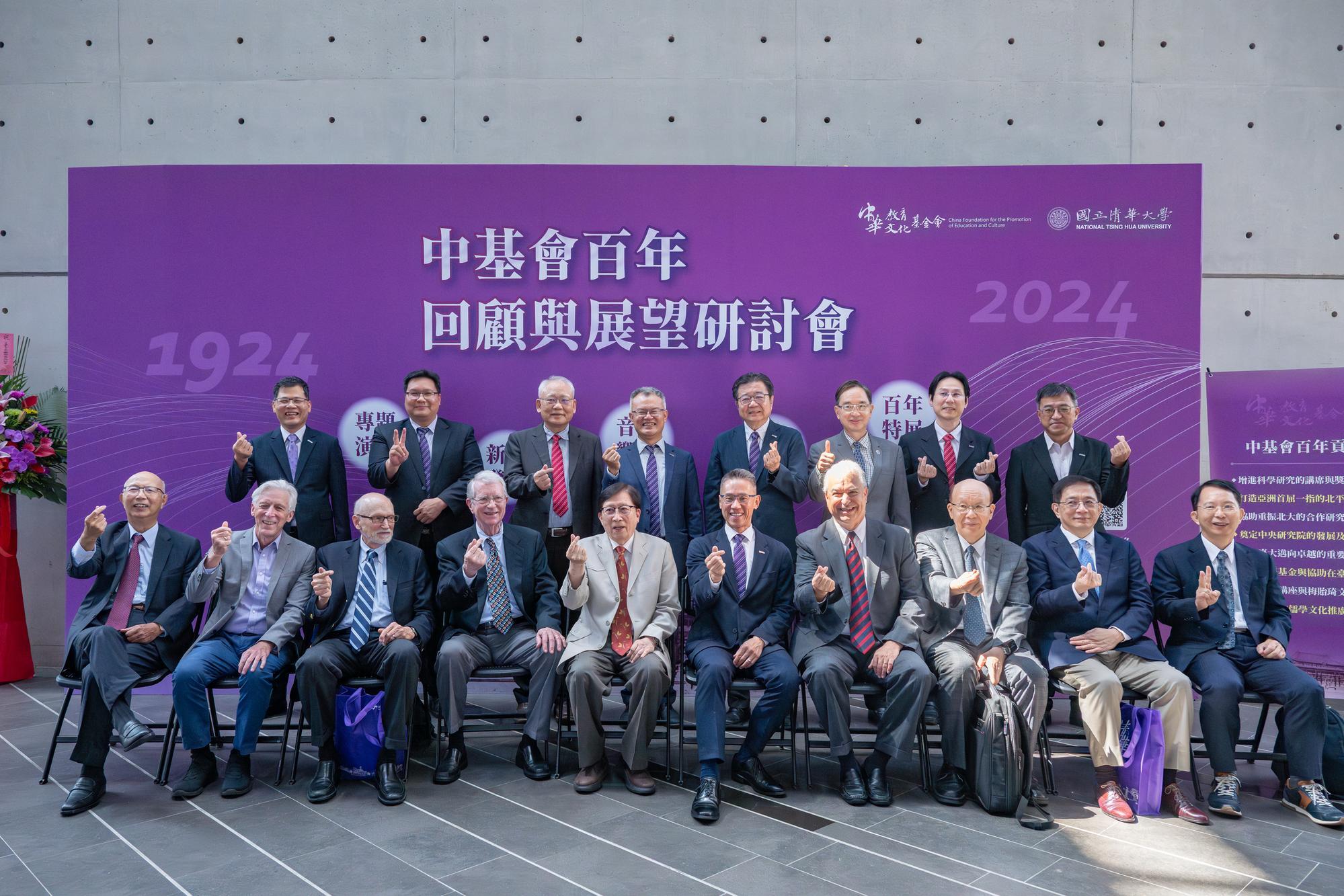
To celebrate the 100th anniversary of the China Foundation, board members and university administrators attended the "Reflections and Prospects" seminar.
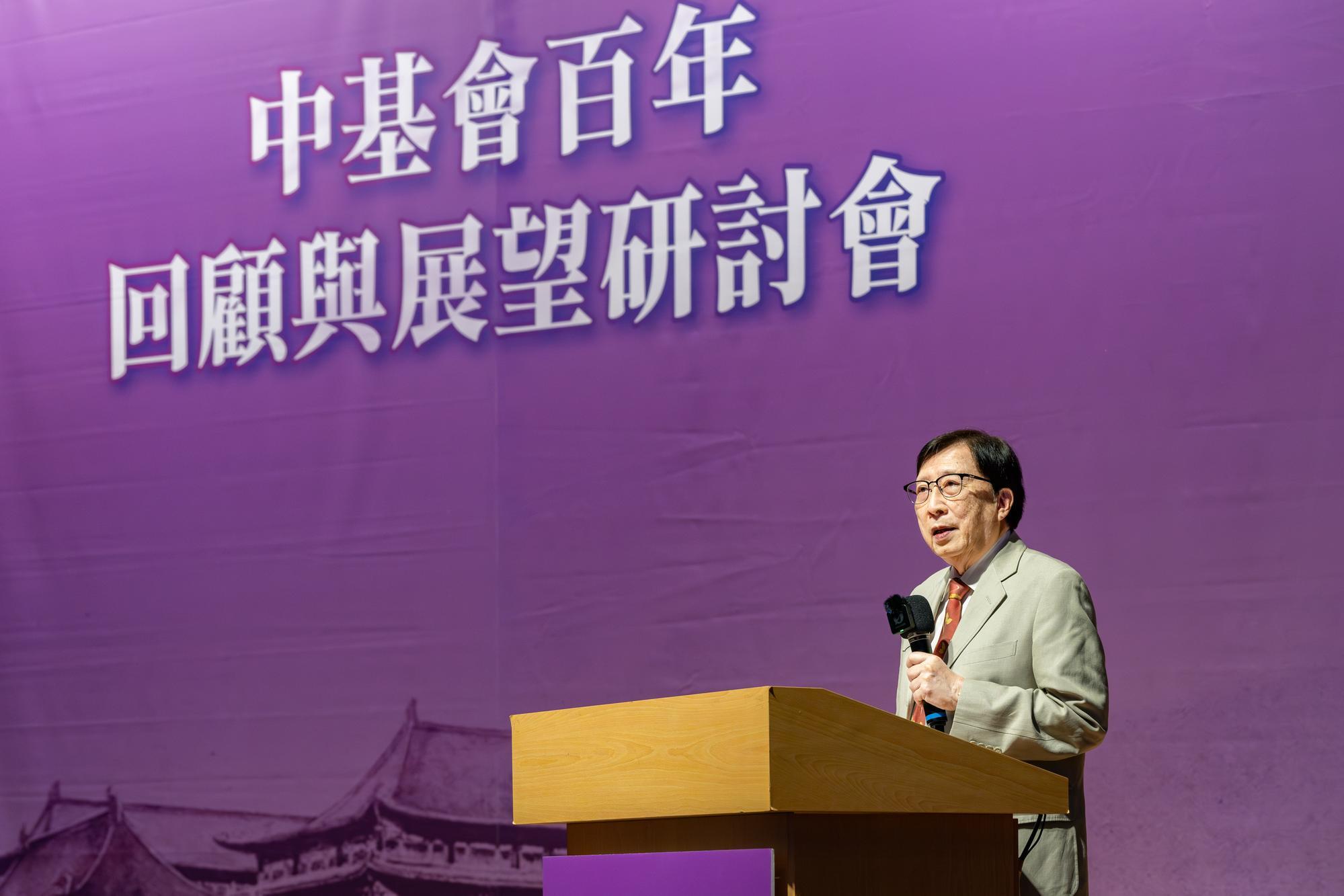
Chairman of the China Foundation Chao-Shiuan Liu (劉兆玄) stated that the foundation has played a significant role in the history of modern education and cultural development.
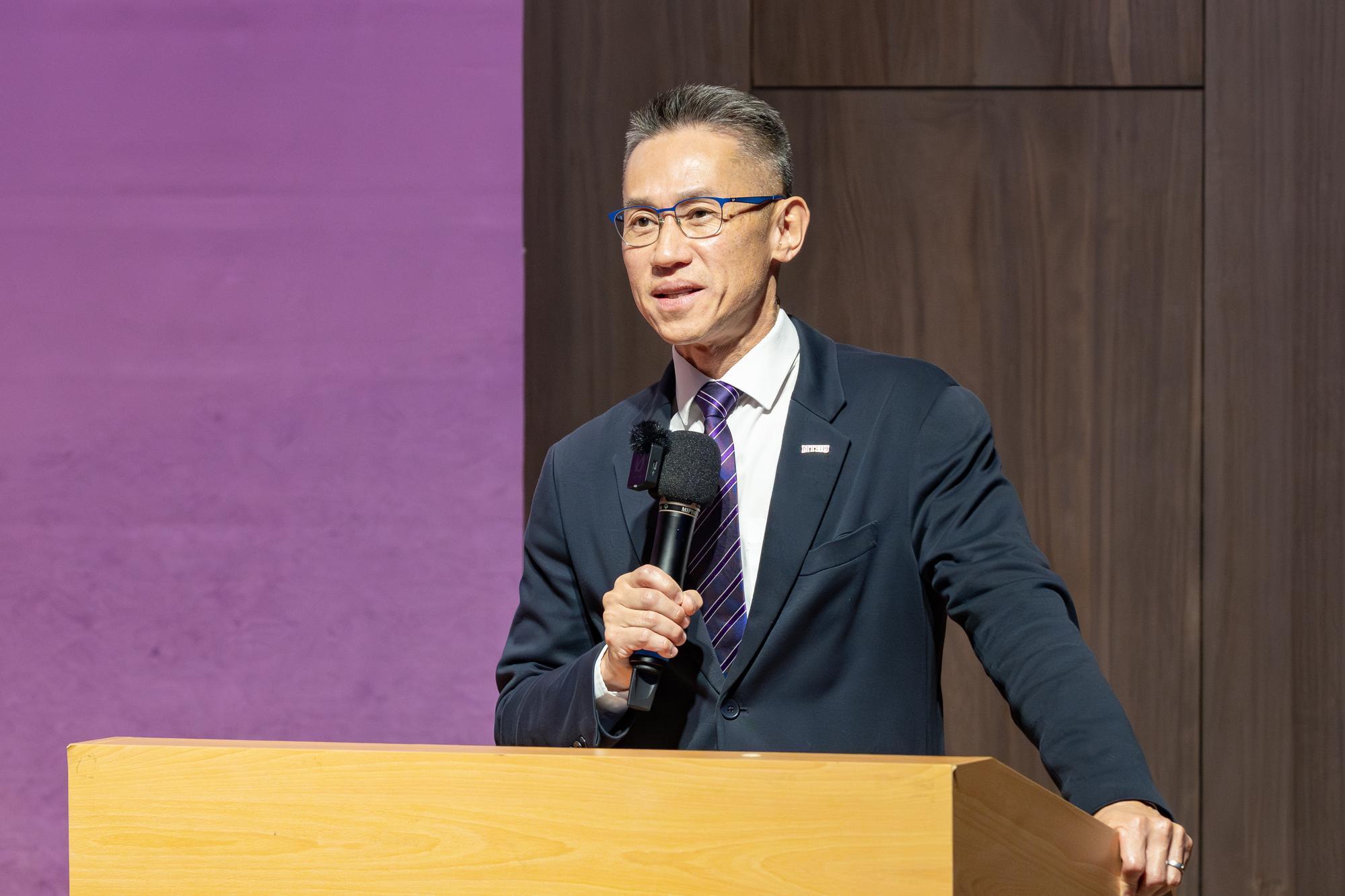
NTHU President W. John Kao (高為元) expressed his hope for NTHU and the China Foundation to create another century of glory together.
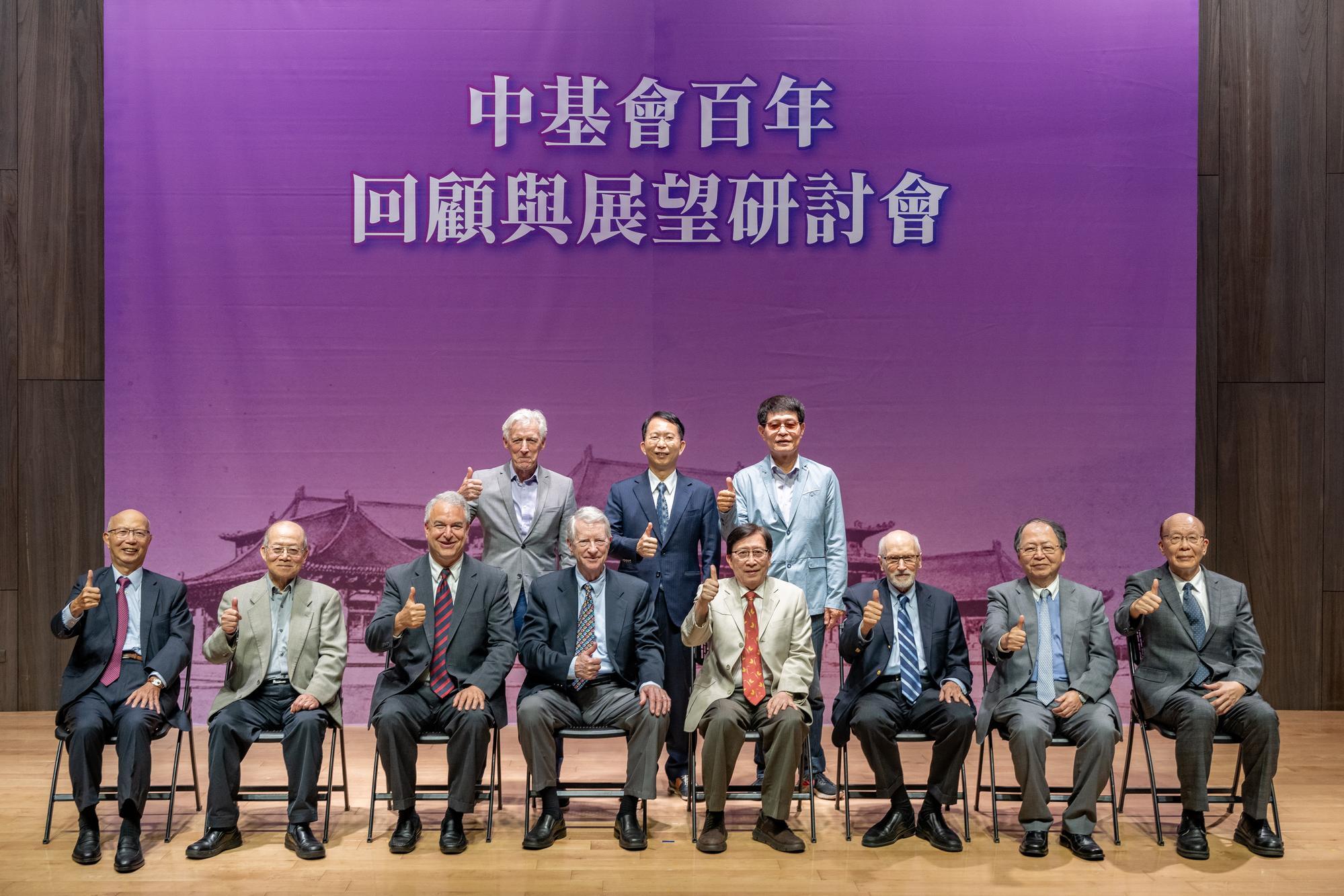
The China Foundation celebrates its 100th anniversary with a group photo of its board members. In the front row, from left to right, are board members Chi-Chu Chen (陳季筑), Chi Schive, David Firestein, Robert Parker, Chairman Chao-Shiuan Liu (劉兆玄), William Fuller, Lih J. Chen (陳力俊), Si-Chen Lee (李嗣涔), In the back row, from left to right, are Douglas Dempster, Tsung-Fu Chen (陳聰富), Director Mike Wang (王建亞)
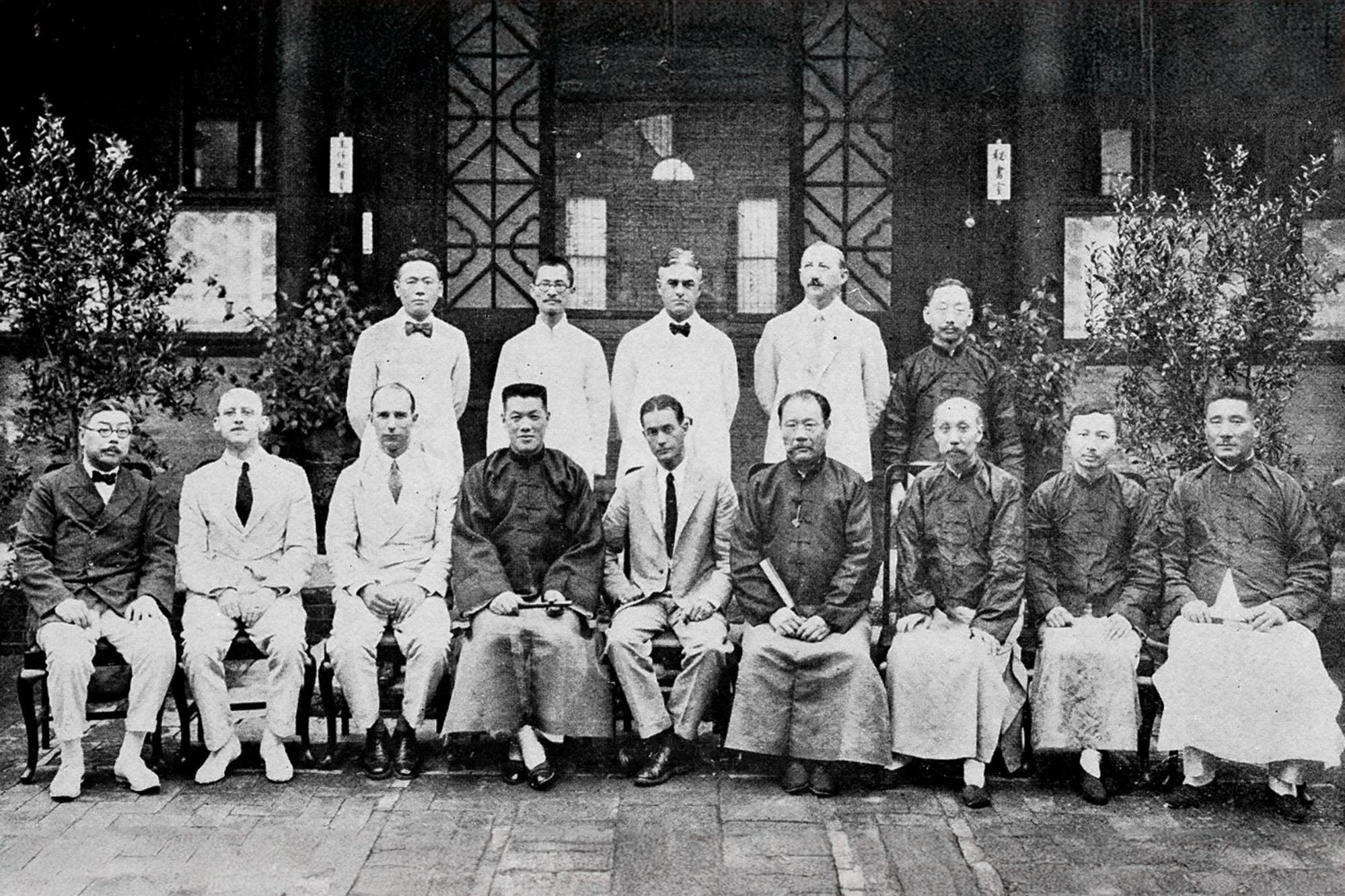
The China Foundation was officially established in Beijing on July 28, 1925. Back row from the left are Y.T. Tsur (周貽春), Chiang Monlin (蔣夢麟), J.E. Baker, C.R. Bennett, V.K. Ting (丁文江). Front row from the left are W.W. Yen (顏惠慶),W.R. Peck, F.L. Mayer, Tseng Tsung-chien (Vice Minister of the Ministry of Foreign Affairs), J.V.A. MacMurray, Chen Jen-chung (Vice Minister of the Ministry of Education), Chang Hsun-ching (Vice Minister of Finance), Fan Yuan-lien (范源廉), and Chang Poling (張伯苓).
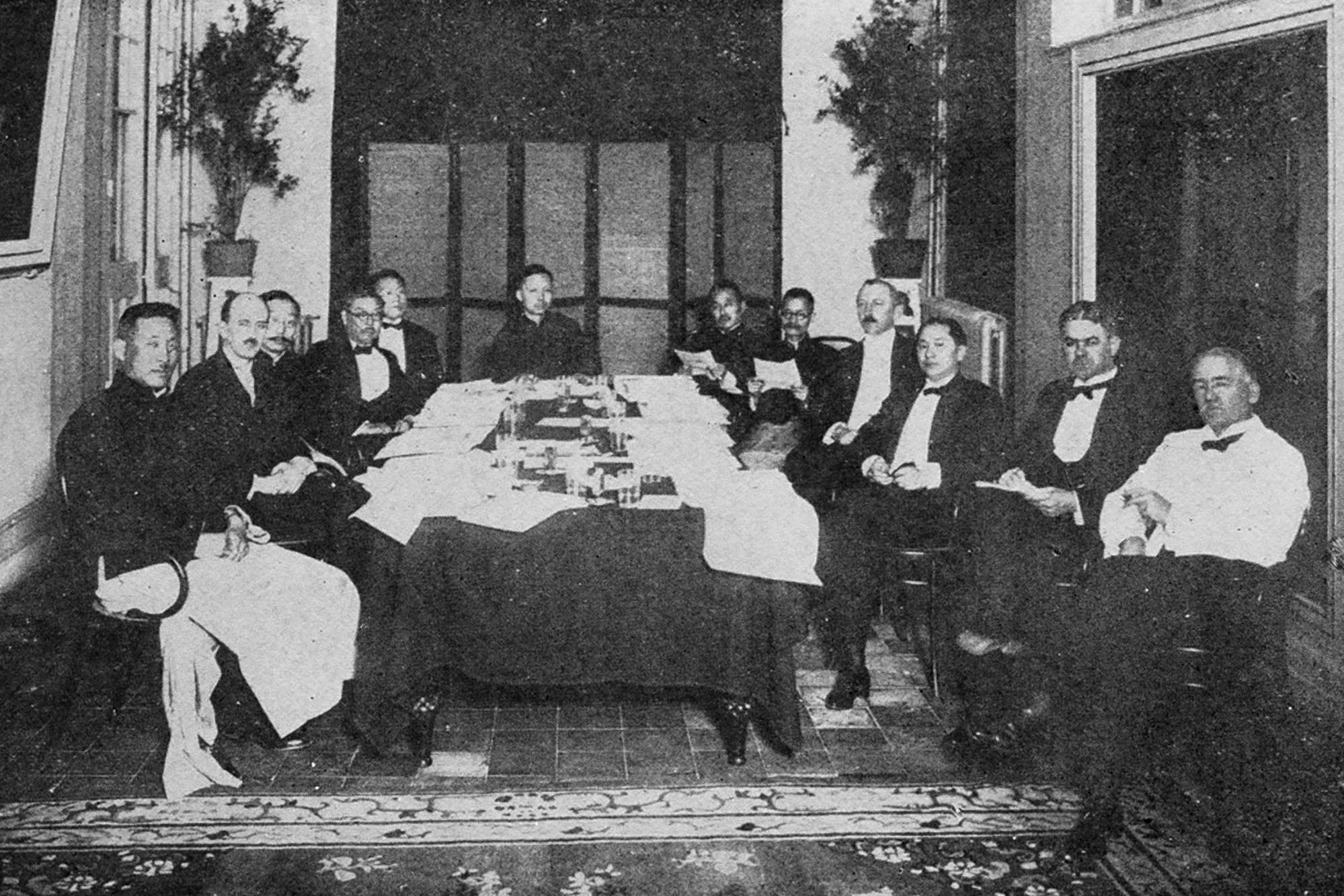
The first Annual Meeting of the Board of Trustees was held in 1925. From the left are Chang Poling (張伯苓), Roger Greene (顧臨),V.K. Ting (丁文江), W.W. Yen (顏惠慶), Y.T. Tsur (周詒春), Fan Yuan-lien (范源廉), Huang Yen-pei (黃炎培), Chiang Monlin (蔣夢麟), C.R. Bennett, V.K. Willington Koo (顧維鈞), J.E. Baker, and Paul Monroe (孟祿).
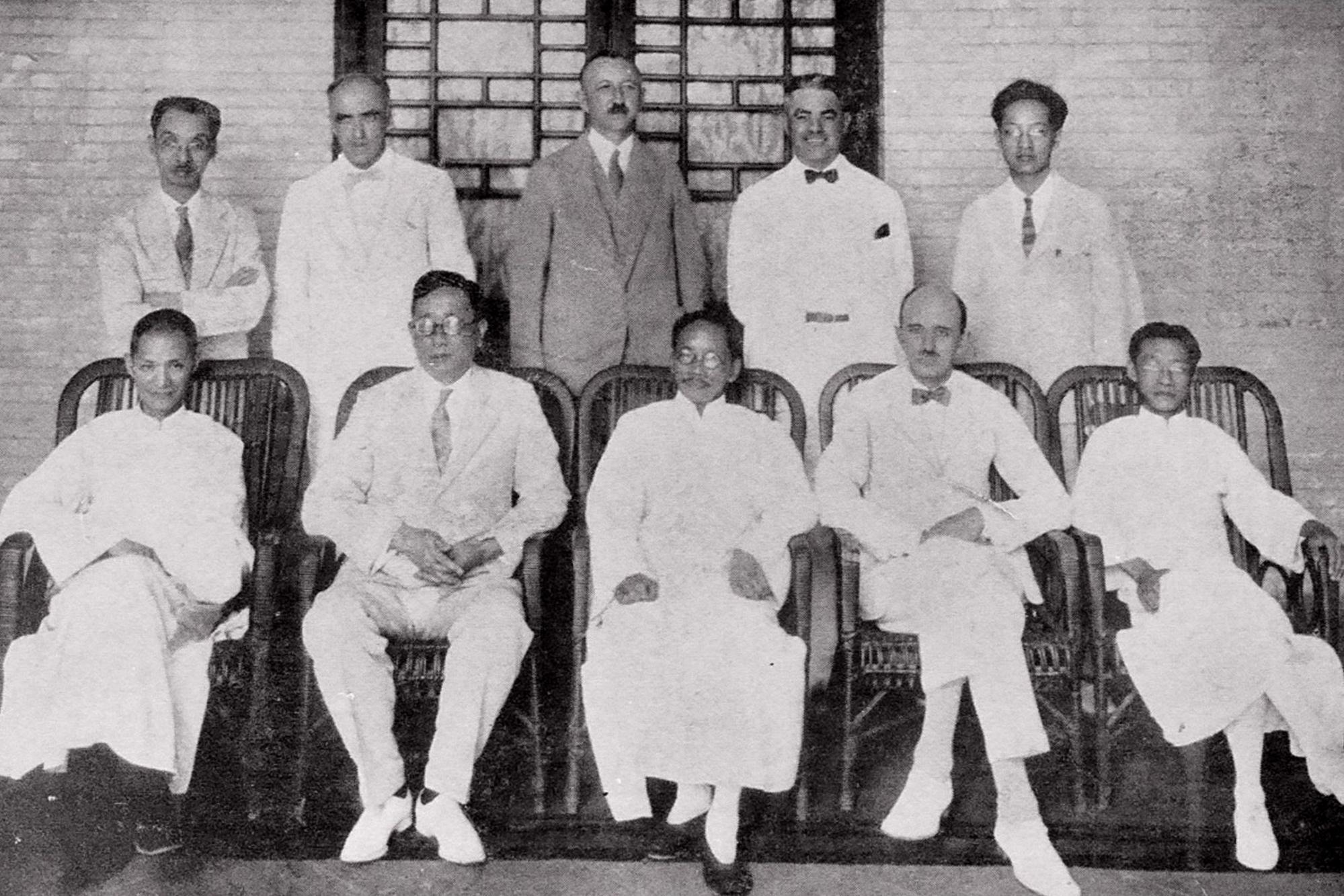
The fifth Annual Meeting of the Board of Trustees was held in 1929. In the back row from the left are H.C. Zen (任鴻雋), J. Leighton Stuart, C.R. Bennett, J.E. Baker, and Y.R. Chao (趙元任). In the front row from the left are Chiang Monlin, Saoke Alfred Sze, Tsai Yuan-pei (蔡元培), Roger Greene (顧臨) and W. H. Wong (翁文灝).
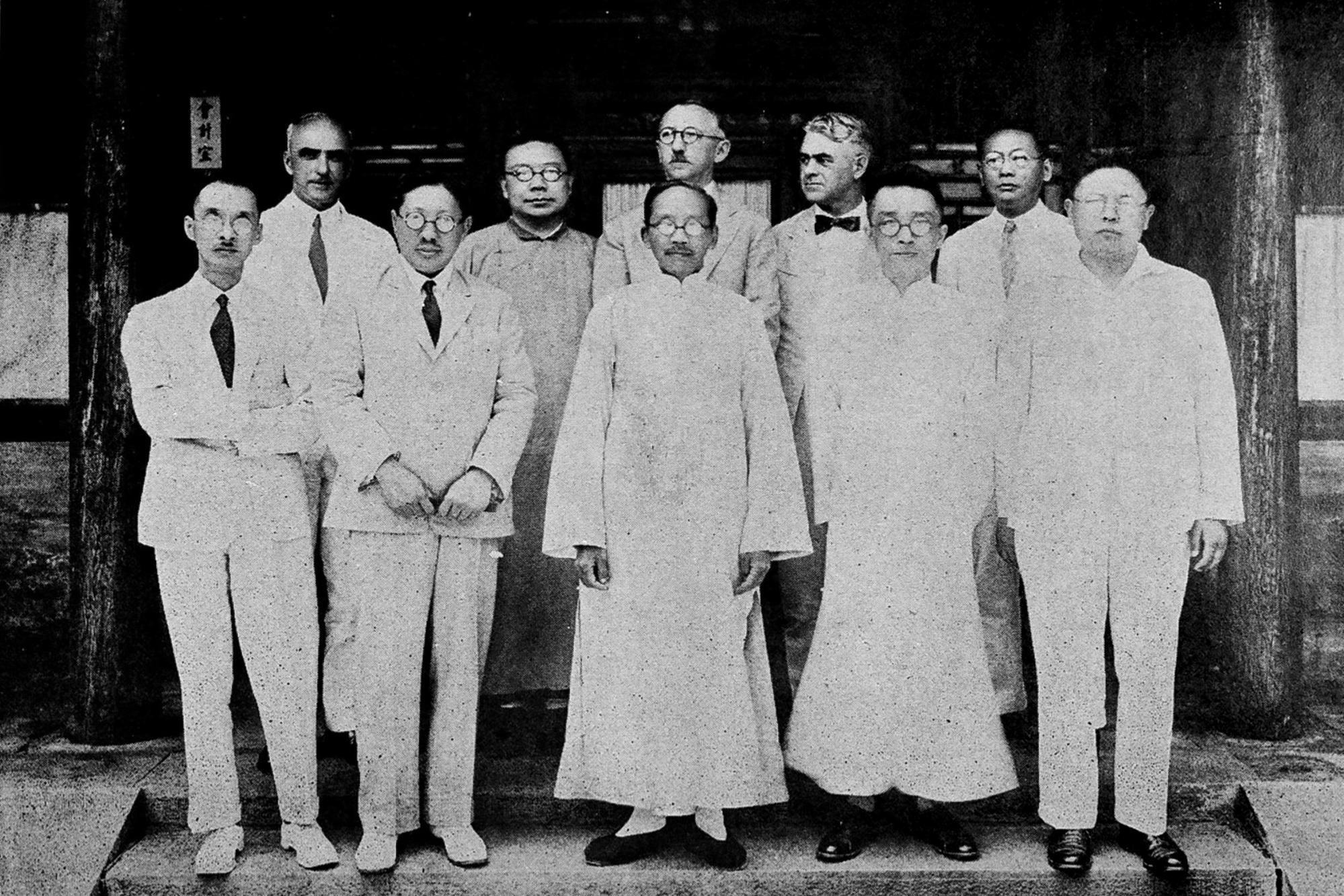
The eighth Annual Meeting of the Board of Trustees was held in 1932. In the back row from the left are J. Leighton Stuart, Soh-tsu G. King (金紹基), C.R. Bennett, J.E. Baker, and Y.T. Tsur (周貽春). In the front row from the left are H.C. Zen (任鴻雋), Wang Chen-chuan (representative of the Ministry of Foreign Affairs), Tsai Yuan-pei (蔡元培), Hu Shih (胡適), and Fu Ssu-nien (傅斯年).
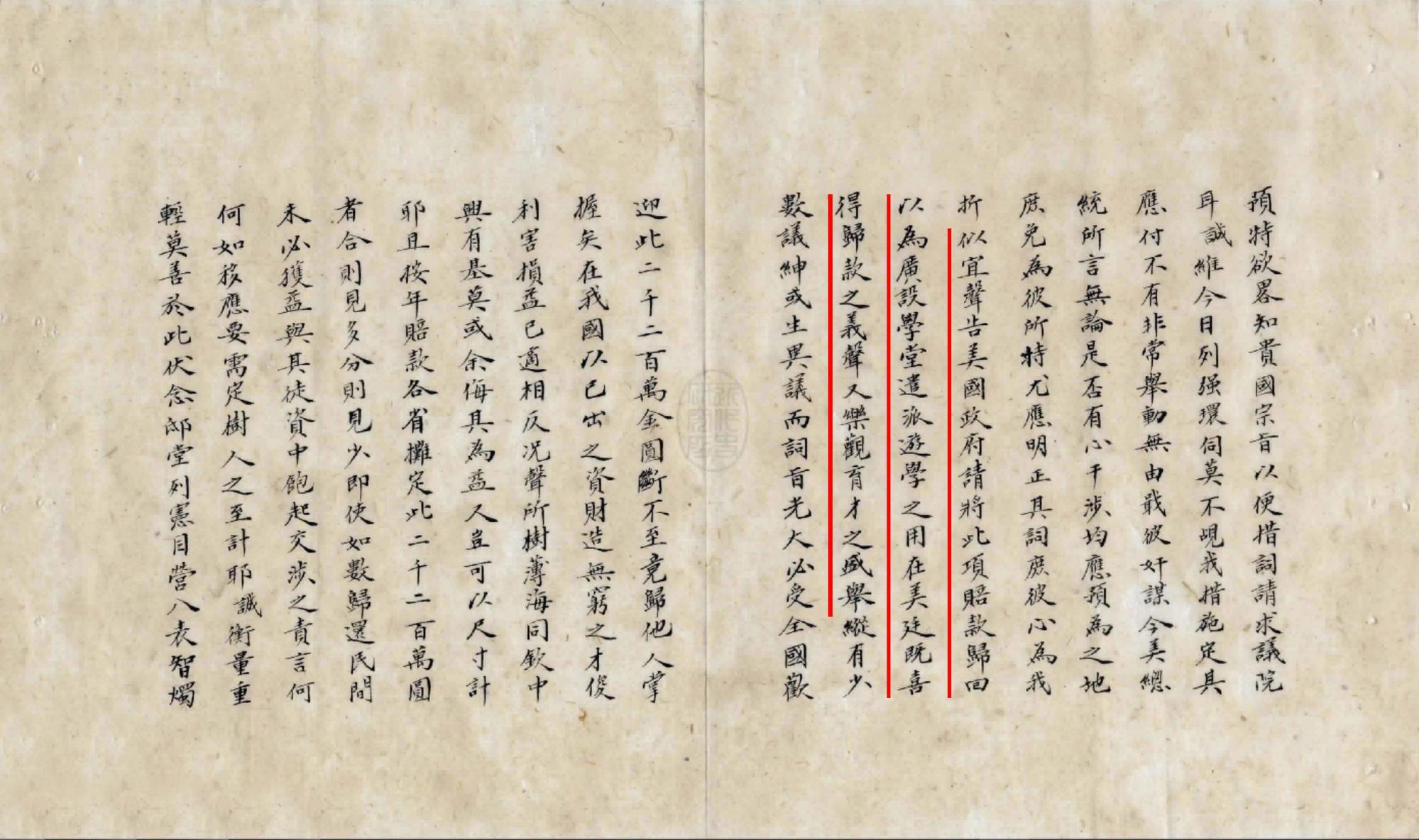
In the 31st year of the Guangxu reign period, Minister Liang Cheng submitted a telegram to the U.S. government, requesting the return of the Boxer Indemnity funds "for the establishment of schools and the dispatch of students for overseas study.”










